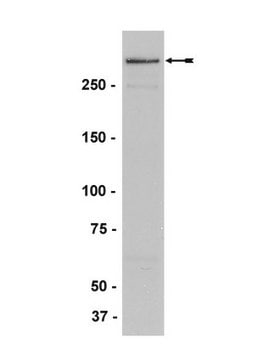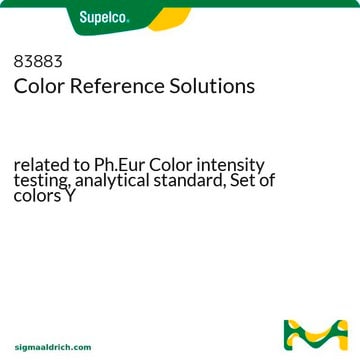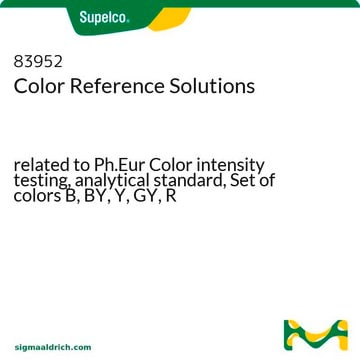05-765
Anti-MLL/HRX Antibody, CT., clone 9-12
clone 9-12, Upstate®, from mouse
동의어(들):
Histone-lysine N-methyltransferase 2A, Lysine N-methyltransferase 2A, ALL-1, CXXC-type zinc finger protein 7, Myeloid/lymphoid or mixed-lineage leukemia, Myeloid/lymphoid or mixed-lineage leukemia protein 1, Trithorax-like protein, Zinc finger protein HR
로그인조직 및 계약 가격 보기
모든 사진(1)
About This Item
UNSPSC 코드:
12352203
eCl@ss:
32160702
NACRES:
NA.41
추천 제품
생물학적 소스
mouse
Quality Level
항체 형태
purified immunoglobulin
항체 생산 유형
primary antibodies
클론
9-12, monoclonal
종 반응성
mouse, human
제조업체/상표
Upstate®
기술
ChIP: suitable
immunofluorescence: suitable
immunoprecipitation (IP): suitable
western blot: suitable
동형
IgG1
NCBI 수납 번호
UniProt 수납 번호
배송 상태
wet ice
타겟 번역 후 변형
unmodified
유전자 정보
human ... KMT2A(4297)
일반 설명
The acute lymphoblastic leukaemia (ALL)-1 (also known as MLL, HRX, HTRX, and TRX1) gene on human chromosome 11q23 is the site of many locally clustered chromosomal alterations associated with several types of acute leukaemias, including deletions, partial duplications and translocations. Structurally variant proteins derived from the altered gene presumably cause the malignant transformation of early haemopoietic progenitor cells.
특이성
This monoclonal antibody targets the C-terminal proteolytic fragment of MLL (C180; MLLC). A reduced target band detection by this antibody was seen lysate from G411NS human glioblastoma neural stem cells transfected with MLL shRNA (Gallo, M., et al. (2013). Cancer Res. 73(1):417-427).
면역원
Epitope: MLL C-terminal fragment
MBP-tagged recombinant human mixed lineage leukemia (MLL) protein C-terminal fragment (a.a. 3084-3959).
애플리케이션
Anti-MLL/HRX, C-term., clone 9-12 is a high quality mouse monoclonal antibody that has been validated and published for use in Chromatin Immunoprecipitation (ChIP), Immunofluorescence, Immunoprecipitation, and Western Blotting applications.
Immnuofluorescence Analysis: A representative lot detected MLL expression in SOX2+ cells in paraffin-embedded high-grade human gliomas sections (Gallo, M., et al. (2013). Cancer Res. 73(1):417-427).
Chromatin Immnuoprecipitation (ChIP) Analysis: A representative lot detected MLL occupancy at the Hoxa10 and Meis promoters in mouse MLL-AF10 leukemia cells (Gallo, M., et al. (2013). Cancer Res. 73(1):417-427).
Chromatin Immnuoprecipitation (ChIP) Analysis: A representative lot detected an enhanced MLL occupancy at the Ink4a locus of 8-month-old than 2-month-old bEzTG mouse islets. The same age-dependent Ink4a locus enrichment was observed with H3K4me3, while the opposite trend was seen with Ezh and H3K27me3 enrichment at the same locus (Zhou, J.X., et al. (2013). J. Clin. Invest. 123(11):4849-4858).
Chromatin Immnuoprecipitation (ChIP) Analysis: A representative lot detected MLL occupancy at the HOXA10 promoter region in G179NS and G411NS human glioblastoma neural stem cells (Gallo, M., et al. (2013). Cancer Res. 73(1):417-427).
Chromatin Immnuoprecipitation (ChIP) Analysis: A representative lot detected MLL occupancy at the DNA replication origin (RD) as well as at both exon 1b and p16INK4a/p19ARF shared exon 2 in mouse embryonic fibroblast (MEF). An increased MLL enrichment at these sites was observed in senescent and Polycomb mutant MEFs (Agherbi, H., et al. (2009). PLoS One. 4(5):e5622).
Chromatin Immnuoprecipitation (ChIP) Analysis: A representative lot detected MLL occupancy at the Hoxa9 AB region using mouse embryonic fibroblast (MEF) chromatin preparation (Erfurth, F.E., et al. (2008). Proc. Natl. Acad. Sci. U.S.A. 105(21):7517-7522).
Immnuoprecipitation Analysis: A representative lot co-immunoprecipitated JmjD3 and RbBP5, but not Dnmt3a, with MLL from Min6 mouse insulinoma cell extract (Zhou, J.X., et al. (2013). J. Clin. Invest. 123(11):4849-4858).
Western Blotting Analysis: A representative lot detected higher MLL level in cultured glioblastoma neural stem (GNS) cells than neural stem (NS) cells, as well as MLL enrichment in the CD15+ fraction of freshly resected Glioblastoma (GBM) cells (Gallo, M., et al. (2013). Cancer Res. 73(1):417-427).
Western Blotting Analysis: A representative lot detected SET domain-containing C-terminal fragment of the MLL complex enzymatic subunit MLL (C180; MLLC) in anti-FLAG immunoprecipitate from HeLaS cells stably expressing FLAG-tagged hDPY-30 (Cho, Y.W., et al. (2007). J. Biol. Chem. 282(28):20395-20406).
Chromatin Immnuoprecipitation (ChIP) Analysis: A representative lot detected MLL occupancy at the Hoxa10 and Meis promoters in mouse MLL-AF10 leukemia cells (Gallo, M., et al. (2013). Cancer Res. 73(1):417-427).
Chromatin Immnuoprecipitation (ChIP) Analysis: A representative lot detected an enhanced MLL occupancy at the Ink4a locus of 8-month-old than 2-month-old bEzTG mouse islets. The same age-dependent Ink4a locus enrichment was observed with H3K4me3, while the opposite trend was seen with Ezh and H3K27me3 enrichment at the same locus (Zhou, J.X., et al. (2013). J. Clin. Invest. 123(11):4849-4858).
Chromatin Immnuoprecipitation (ChIP) Analysis: A representative lot detected MLL occupancy at the HOXA10 promoter region in G179NS and G411NS human glioblastoma neural stem cells (Gallo, M., et al. (2013). Cancer Res. 73(1):417-427).
Chromatin Immnuoprecipitation (ChIP) Analysis: A representative lot detected MLL occupancy at the DNA replication origin (RD) as well as at both exon 1b and p16INK4a/p19ARF shared exon 2 in mouse embryonic fibroblast (MEF). An increased MLL enrichment at these sites was observed in senescent and Polycomb mutant MEFs (Agherbi, H., et al. (2009). PLoS One. 4(5):e5622).
Chromatin Immnuoprecipitation (ChIP) Analysis: A representative lot detected MLL occupancy at the Hoxa9 AB region using mouse embryonic fibroblast (MEF) chromatin preparation (Erfurth, F.E., et al. (2008). Proc. Natl. Acad. Sci. U.S.A. 105(21):7517-7522).
Immnuoprecipitation Analysis: A representative lot co-immunoprecipitated JmjD3 and RbBP5, but not Dnmt3a, with MLL from Min6 mouse insulinoma cell extract (Zhou, J.X., et al. (2013). J. Clin. Invest. 123(11):4849-4858).
Western Blotting Analysis: A representative lot detected higher MLL level in cultured glioblastoma neural stem (GNS) cells than neural stem (NS) cells, as well as MLL enrichment in the CD15+ fraction of freshly resected Glioblastoma (GBM) cells (Gallo, M., et al. (2013). Cancer Res. 73(1):417-427).
Western Blotting Analysis: A representative lot detected SET domain-containing C-terminal fragment of the MLL complex enzymatic subunit MLL (C180; MLLC) in anti-FLAG immunoprecipitate from HeLaS cells stably expressing FLAG-tagged hDPY-30 (Cho, Y.W., et al. (2007). J. Biol. Chem. 282(28):20395-20406).
Research Category
Epigenetics & Nuclear Function
Epigenetics & Nuclear Function
Research Sub Category
Histones
Histones
품질
Evaluated by Western Blotting in K562 nuclear extract.
Western Blotting Analysis: 0.1-1 µg/mL of this antibody detected MLL C-terminal fragment (C180; MLLC) in K562 nuclear extract.
Western Blotting Analysis: 0.1-1 µg/mL of this antibody detected MLL C-terminal fragment (C180; MLLC) in K562 nuclear extract.
표적 설명
~180 kDa observed. 134.4 kDa (a.a. 2719-3969; human MLL cleavage product C180) and 431.8/427.7/432.1 kDa (human full-length MLL isoform 1/2 (14P-18B)/3) calculated.
물리적 형태
Format: Purified
Protein G purified.
Purified mouse IgG1 in 0.1 M Tris-glycine, pH 7.4, 0.15 M NaCl, 0.05% sodium azide before the addition of glycerol to 30%. Liquid at -20ºC
저장 및 안정성
Store for 2 years at -20ºC from date of shipment. For maximum recovery of product, centrifuge the vial prior to removing the cap.
분석 메모
Control
K562 nuclear extract
K562 nuclear extract
기타 정보
Concentration: Please refer to the Certificate of Analysis for the lot-specific concentration.
법적 정보
UPSTATE is a registered trademark of Merck KGaA, Darmstadt, Germany
면책조항
Unless otherwise stated in our catalog or other company documentation accompanying the product(s), our products are intended for research use only and are not to be used for any other purpose, which includes but is not limited to, unauthorized commercial uses, in vitro diagnostic uses, ex vivo or in vivo therapeutic uses or any type of consumption or application to humans or animals.
Not finding the right product?
Try our 제품 선택기 도구.
Storage Class Code
10 - Combustible liquids
WGK
WGK 1
시험 성적서(COA)
제품의 로트/배치 번호를 입력하여 시험 성적서(COA)을 검색하십시오. 로트 및 배치 번호는 제품 라벨에 있는 ‘로트’ 또는 ‘배치’라는 용어 뒤에서 찾을 수 있습니다.
MLL protects CpG clusters from methylation within the Hoxa9 gene, maintaining transcript expression.
Erfurth, FE; Popovic, R; Grembecka, J; Cierpicki, T; Theisler, C; Xia, ZB; Stuart et al.
Proceedings of the National Academy of Sciences of the USA null
Hsu-Ping Kuo et al.
Cancer cell, 24(4), 423-437 (2013-09-24)
MLL fusion proteins in leukemia induce aberrant transcriptional elongation and associated chromatin perturbations; however, the upstream signaling pathways and activators that recruit or retain MLL oncoproteins at initiated promoters are unknown. Through functional and comparative genomic studies, we identified an
Isabelle S Lucet et al.
The Journal of biological chemistry, 280(4), 2503-2511 (2004-11-16)
Members of the large serine resolvase family of site-specific recombinases are responsible for the movement of several mobile genetic elements; however, little is known regarding the structure or function of these proteins. TnpX is a serine recombinase that is responsible
Laurie K Svoboda et al.
Oncotarget, 8(1), 458-471 (2016-11-27)
Developmental transcription programs are epigenetically regulated by the competing actions of polycomb and trithorax (TrxG) protein complexes, which repress and activate genes, respectively. Ewing sarcoma is a developmental tumor that is associated with widespread de-regulation of developmental transcription programs, including
Hong Wang et al.
Acta pharmaceutica Sinica. B, 12(4), 1871-1884 (2022-07-19)
Metabolic and epigenetic reprogramming play important roles in cancer therapeutic resistance. However, their interplays are poorly understood. We report here that elevated TIGAR (TP53-induced glycolysis and apoptosis regulator), an antioxidant and glucose metabolic regulator and a target of oncogenic histone
자사의 과학자팀은 생명 과학, 재료 과학, 화학 합성, 크로마토그래피, 분석 및 기타 많은 영역을 포함한 모든 과학 분야에 경험이 있습니다..
고객지원팀으로 연락바랍니다.








